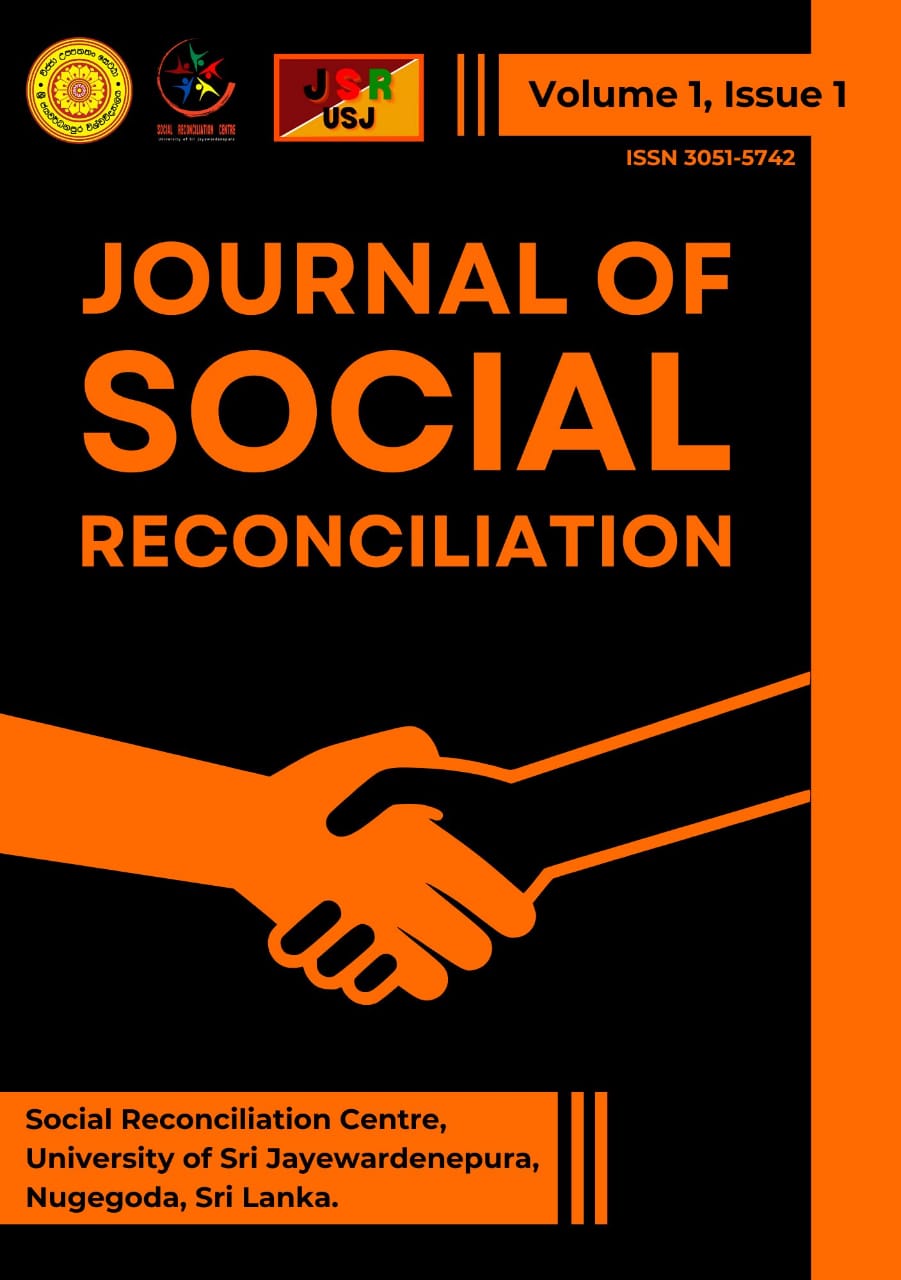AN INVESTIGATIVE STUDY ON THE CONTRIBUTION OF BUDDHIST PHILOSOPHY FOR SOCIAL HARMONY
DOI:
https://doi.org/10.31357/jsr.v1i01.7538Keywords:
Buddhist Teachings, Coexistence, Religious Influence, Social Cohesion, Social HarmonyAbstract
Coexistence is an indispensable virtue for the future existence of society, as progress is unattainable without harmony. Achieving social harmony requires individuals to coexist peacefully and harmoniously within their communities. This study aims to elucidate the role of Buddhist teachings in fostering social harmony, examining their impact on societal cohesion across past, present, and future contexts. The primary objectives include explaining how social harmony is built through Buddhist principles, studying the contribution of these teachings to social cohesion, and exploring the development of social harmony through the lens of Buddhism. Additionally, the research seeks to understand how Buddhist teachings influence social harmony among individuals divided by caste and religion.Employing a literature review method within a historical investigation framework, this study draws upon a wide range of sources, including books, scholarly articles, electronic resources, and television programs. By systematically reviewing these materials, the research aims to provide a comprehensive understanding of the topic. The relevance of social cohesion as a critical issue in the 21st century underscores the importance of this investigation.This qualitative study will reveal the ways in which Buddhist religious teachings support societal coexistence, offering insights into the significant role of religion in building the harmony necessary for a country's stability and progress. The findings are expected to highlight the enduring relevance of Buddhist principles in promoting social harmony and the potential for these teachings to address contemporary challenges related to social cohesion. Through this study, we hope to contribute to the ongoing discourse on the role of religion in fostering a more harmonious and inclusive society.



